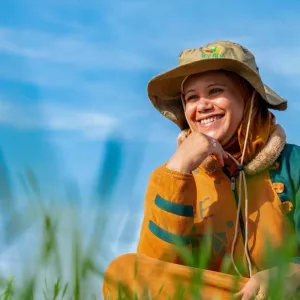The Road to a Global Strategy for Resilient Drylands
CGIAR’s Global Strategy for Resilient Drylands takes center stage as we approach UNFCCC COP29 in Baku, Azerbaijan, and UNCCD COP16 in Riyadh, Saudi Arabia. The Global Strategy for Resilient Drylands (GSRD) is a partner-led initiative that addresses the agri-challenges posed by climate change, desertification, and water scarcity in drylands to generate resilient livelihoods by promoting climate-smart agriculture, conserving biodiversity, enhancing

The Road to a Global Strategy for Resilient Drylands
CGIAR’s Global Strategy for Resilient Drylands takes center stage as we approach UNFCCC COP29 in Baku, Azerbaijan, and UNCCD COP16 in Riyadh, Saudi Arabia.
The Global Strategy for Resilient Drylands (GSRD) is a partner-led initiative that addresses the agri-challenges posed by climate change, desertification, and water scarcity in drylands to generate resilient livelihoods by promoting climate-smart agriculture, conserving biodiversity, enhancing soil and water management, and ensuring access to healthy diets.
As CGIAR’s first cross-center drylands strategy, the GSRD draws on 50 years of dryland science, innovation, and collaboration across CGIAR’s 15 global research centers and partner networks. The strategy harnesses cutting-edge technology, fosters creativity, and tailors solutions to the specific needs of different dryland regions, ensuring a thriving future for millions who rely on these areas for food and livelihoods.
GSRD is the product of collaboration led by ICARDA and ICRISAT, alongside CGIAR partners like CIFOR-ICRAF, CIMMYT, CIP, IFPRI, IITA, ILRI, IWMI, and WorldFish, the Aliance of Bioversity and CIAT, IRRI, and AfricaRice. It has been shaped through consultations with national research organizations, governments, private sector partners, and civil society. As we approach COP season, the GSRD will take center stage at events, workshops, and conferences, providing global stakeholders the opportunity to review, consult, and collaborate ahead of its launch.

